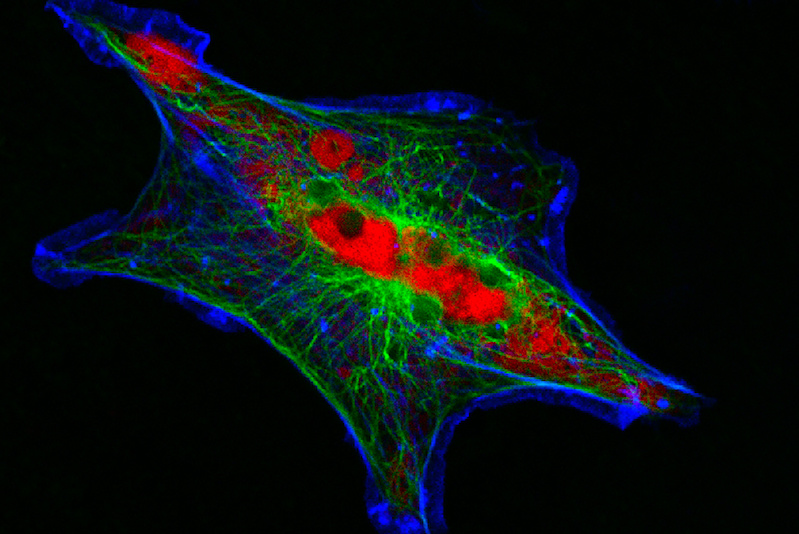
This originally appeared on Vector, Boston Children’s Hospital’s blog.
A multi-center clinical trial is now offering nationwide genetic profiling services to pediatric and young adult cancer patients across the U.S. The goal is to identify gene mutations that can be individually matched with targeted drugs.
“This is the first-ever nationwide precision medicine clinical trial for pediatric cancer,” says pediatric oncologist Katherine Janeway, MD, clinical director of the solid tumor center at Dana-Farber/Boston Children’s Cancer and Blood Disorders Center.
Sponsored by the National Institute of Cancer (NCI) and the Children’s Oncology Group (COG), the so-called NCI-COG Pediatric MATCH trial will screen patients’ tumors for more than 160 gene mutations related to cancer. Nearly 1,000 patients are expected to participate in the trial and it is estimated that 10 percent of those patients will be matched with a targeted therapy.
Janeway is a principal investigator for one of the Pediatric MATCH’s treatment arms and is involved with the trial’s design as co-chair of a key committee of U.S. pediatric oncologists, the NCI and the COG.
How Pediatric Match Works
The trial — which will be offered at COG hospitals across the U.S. — is enrolling children and adolescents with advanced solid tumors, lymphomas and histiocytosis whose cancer has gotten worse while on treatment or has come back after treatment, according to the NCI.
“We already obtain tumor profiling on all of our patients at Dana-Farber/Boston Children’s through our precision cancer medicine initiative and we have access to targeted therapies through our phase I program,” says Janeway.
The trial currently has eight treatment arms, each testing a different drug that targets specific genetic mutations. After a patient becomes a participant in the trial, his or her tumor is sequenced to see if it contains genetic mutations targeted by one or more of the eight drugs being studied. Patients with a cancer that has a genetic profile matching one or more targeted therapies will be offered the opportunity to enroll in the relevant treatment arm(s).
At Dana-Farber/Boston Children’s, Janeway is running one arm of the trial investigating the use of a drug called larotrectinib, which inhibits TRK protein fusion mutations found in a diverse range of cancer types.
Another arm of the trial, evaluating the drug tazemetostat, is being led by oncologist Susan Chi, MD, who is the clinical director of the pediatric brain tumor clinical trials program at Dana-Farber/Boston Children’s. Tazemetostat inhibits a protein called EZH2, which helps cancer cells proliferate.
“It is very exciting that access to genomic profiling and targeted therapies is now expanding to children all across the country,” says Janeway.
